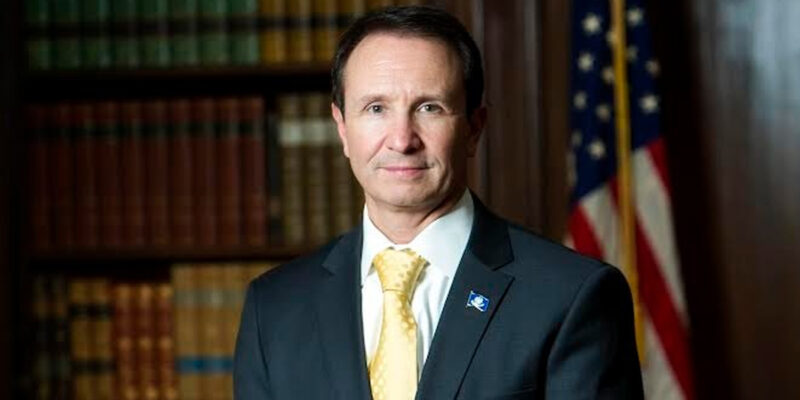A little-noticed act from last year has helped to facilitate Republican Gov. Jeff Landry’s request to increase efficiency in how Louisiana handles its natural resources, including the possibility that tens of billions of dollars will be spent more wisely over the coming decades.
The new law changed, as of last month, the name of the Department of Energy and Natural Resources by adding the “Energy” designation. It also added some structure to it that will provide some guardrails for a request by executive order Landry made last week to reorganize natural resources functions from three separate affiliated agencies and over a dozen independent commissions into the defined functions of the department.
This law empowers Landry to solicit changes from the department, with the first report due at the end of the month and all wrapped up by the end of July. Likely some legislation will come forth concerning this for the year’s regular legislative session to begin March 11 and to end June 3. Likely, many of the entities listed in the order will be folded into DENR management, the new law and text of the order suggests.
Output from the reports could improve administration in a number of ways. For example, largely useless entities like the Climate Initiatives Task Force, which produced little in value and mostly poor policy recommendations with little scientific merit while being heavily politicized, can be put out of its misery welcomed by citizens and taxpayers.
Other functions could benefit from streamlining. The entities involved are governed by boards that, at best, could be made entirely advisory, or perhaps eliminated entirely. One of the most prominent is the State Mineral and Energy Board, whose main functions involved leasing of state lands for oil and gas development, transferring those leases, and managing activity on others. Most of its 11 members are appointed by the governor with Senate confirmation (the governor and secretary, or their designees, also are members), required only to have some connection to the energy industry, and who serve concurrently with the governor. It uses DENR resources to do its job.
Landry hasn’t made membership changes to that, perhaps because it may face a radical overhaul as a result of his order. The majority of states conduct these affairs within their DENR-equivalent agencies, although some follow Louisiana’s model in having appointed boards – even as often representatives of government agencies solely comprise or make up the majority of members – and a very few, including the large producing states of Oklahoma and Texas, elect members. It would make more sense for the secretary, whose department already determines tracts to be leased or transferred and recommended parameters pertaining to that, to decide on deals and other matters rather than political appointees.
Yet the biggest impact to the state and its taxpayers that could come from these changes would be the consolidation of the Coastal Protection and Restoration Authority into DENR. At present, CPRA exists as an arm of the Governor’s Office of Coastal Activities that provides for CPRA administrative leadership. Its board, comprised of appointees from various statewide elected and cabinet officers and the Legislature plus regional planning agencies, provides for the planning and execution of the coastal master plan, last updated in 2023, and the annual plans derived from it, along with general oversight of protection and restoration projects undertaken through CPRA.
Unfortunately, this structure has proven itself susceptible to an ethos of climate alarmism, as evidenced in the last two master plans. Regrettably, in formulating funding priorities totaling $50 billion, the reports rely upon the most pessimistic scenarios driven by alarmist-based models, not by actual science. This approach can distort the projects chosen and their priorities, risking the spending of billions on things low in actual priority or even unnecessary while neglecting projects with higher real payoffs, to the detriment of industry, residents, and taxpayers.
Folding governance of CPRA into DENR certainly could encourage following the science to a higher degree and dispensing with politicized fad and fashion that currently influences project choice, priority, and spending decisions, both in sorting out the annual plan and in construction of the next master plan due by 2028. The current model with its track record of not preventing bad assumptions behind projects forwarded to the Legislature for funding argues that a fresh approach only can improve matters, much as this displeases the politics-as-usual crowd.
Landry is right to pursue these reforms that promise better performance for fewer dollars. The sooner his administration can formulate these and the Legislature acts upon them, the better for Louisiana.
Advertisement
Advertisement

